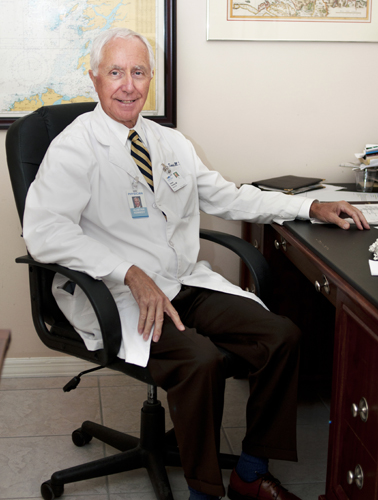A mosquito-borne virus that can wreak havoc on a person’s joints has afflicted 48 people in Florida this year, and local health officials are urging residents to be vigilant about minimizing mosquito-breeding areas on their properties in an effort to stave off potential infection.
All of the Florida cases of chikungunya virus were imported, meaning the person infected was bitten by a mosquito carrying the virus in another country, then returned to the United States while symptomatic. Those who were infected came to the U.S. after traveling to places including the Dominican Republic, Martinique and Haiti.
Outbreaks of chikungunya virus, a dengue-like illness, have been reported in Africa, Southern Europe, Southeast Asia, the Indian subcontinent and Indian and Pacific Oceans over the years, and more recently, the Caribbean – a big travel destination for Floridians.
There is no vaccine to prevent the chikungunya virus infection and no medicine to treat it, says the Centers for Disease Control and Prevention. Symptoms usually begin three to seven days after being bitten by an infected mosquito; most people feel better within a week but joint pain can last for months. It’s rarely fatal.
The two breeds of mosquitoes that carry the chikungunya virus exist in Florida. State and local health officials urge infected people in the U.S. to avoid mosquito bites while ill to avoid passing on the virus to local mosquitoes that then could spread it to more people.
“It is more prevalent now in areas closer to Florida and where Floridians travel,” Cheryl Dunn, environmental health manager at the Florida Department of Health of Indian River County, said of the outbreaks. “We have an increase in the number of individuals going to countries where chikungunya is, and we happen to have the species of mosquitoes that carry the virus.”
The species are the yellow fever mosquito and Asian tiger mosquito, both common , and not hard to find in Florida.
Chikungunya has the potential to mimic the scenario with the dengue outbreak that occurred last year in Martin County, when 22 people in the Jensen Beach area were affected. There were no reported cases of dengue last year in Indian River County, Dunn said.
Counties reporting chikungunya cases this year include Brevard, Broward, Charlotte, Clay, Duval, Flagler Hillsborough, Lake, Lee, Leon, Miami-Dade, Orange, Osceola, Palm Beach, Pasco, Polk, Santa Rosa, Seminole, St. Lucie and Volusia.
Chikungunya fever is not to be taken lightly, says Dr. Alastair Kennedy. The local rheumatologist has long experience with the virus, dating back nearly 40 years doing academic research involving 20 patients in Africa.
“It’s a nasty condition,” he said. “Most people clear up within weeks, some have it for a more significant time. Some get it but don’t have a reaction to it.”
Kennedy was in South Africa when he traveled to Kruger National Park to observe an outbreak of the virus in the late 1970s. He and his colleagues observed severe and incapacitating arthritis in patients. In most of those cases, joint pains, stiffness and swelling lasted for at least four months.
“We haven’t had this particular one here before,” he said of the virus, “but we didn’t have West Nile virus 10 years ago either.”
If you suffer any fever, don’t assume it’s the flu, get it checked, he urged. The CDC advises rest, lots of fluids to prevent dehydration and possibly medicines such as ibuprofen, naproxen, acetaminophen or paracetamol to relieve fever and pain.
Altogether, the virus has been found to have infected people in nearly 20 Caribbean nations or islands as well as many countries in Asia and Africa and a few in Europe, says the CDC.
Chikungunya in Swahili means “he who walks bent up.” That’s because of the often debilitating joint pain. Symptoms may include headache, arthritis, rash and more. Infants and the elderly and those with cardiovascular disease, diabetes or hypertension may be at higher risk of severe effects.
The best way to prevent it is to avoid mosquito bites. Use air conditioning or screens, apply insect repellents and wear long sleeves and pants when outdoors, experts say.
And be aggressive about quashing any mosquito breeding grounds within reach. Special attention should be directed toward items and areas that collect shallow water such as birdbaths, buckets, flower pot saucers, clogged gutters and tires in the yard or garden. Mosquitoes carrying the virus bite in the daytime.
The Florida Department of Health in Indian River County works closely with Indian River mosquito control officials on the matter, although there is little they can do other than to educate the public about it.
“It’s a different mindset for people in Florida,” said Don Shroyer, Indian River Mosquito Control District medical entomologist. “We told them for years, ‘be aware of mosquitoes at night, from dusk to dawn wear repellant.’ These are different because they are close to home and they bite during the day.”
Controlling them can be difficult for public officials because they have limited access to the nooks and crannies on private land where the mosquitoes tend to be. Mosquito control can’t use aircraft or spray trucks in such cases. As well, daytime heat makes the spray ineffective, and that’s when these mosquitoes are out and biting.
“It’s a challenge,” Shroyer said. “No one has the resources to go to everyone’s house every week, clean up yards for them. People have to do that for themselves.”
It’s not that complicated, he added. “It’s a lot of common sense things. It takes walking around your home.”
It was 1976 when Kennedy studied the virus found during a mysterious onset of rheumatoid arthritis near Kruger National Park. “It’s taken almost 40 years” to get here, he said.
Now, he said, it is bound to spread. “With people traveling more from the Bahamas to Southern Florida, it’s inevitable.”

